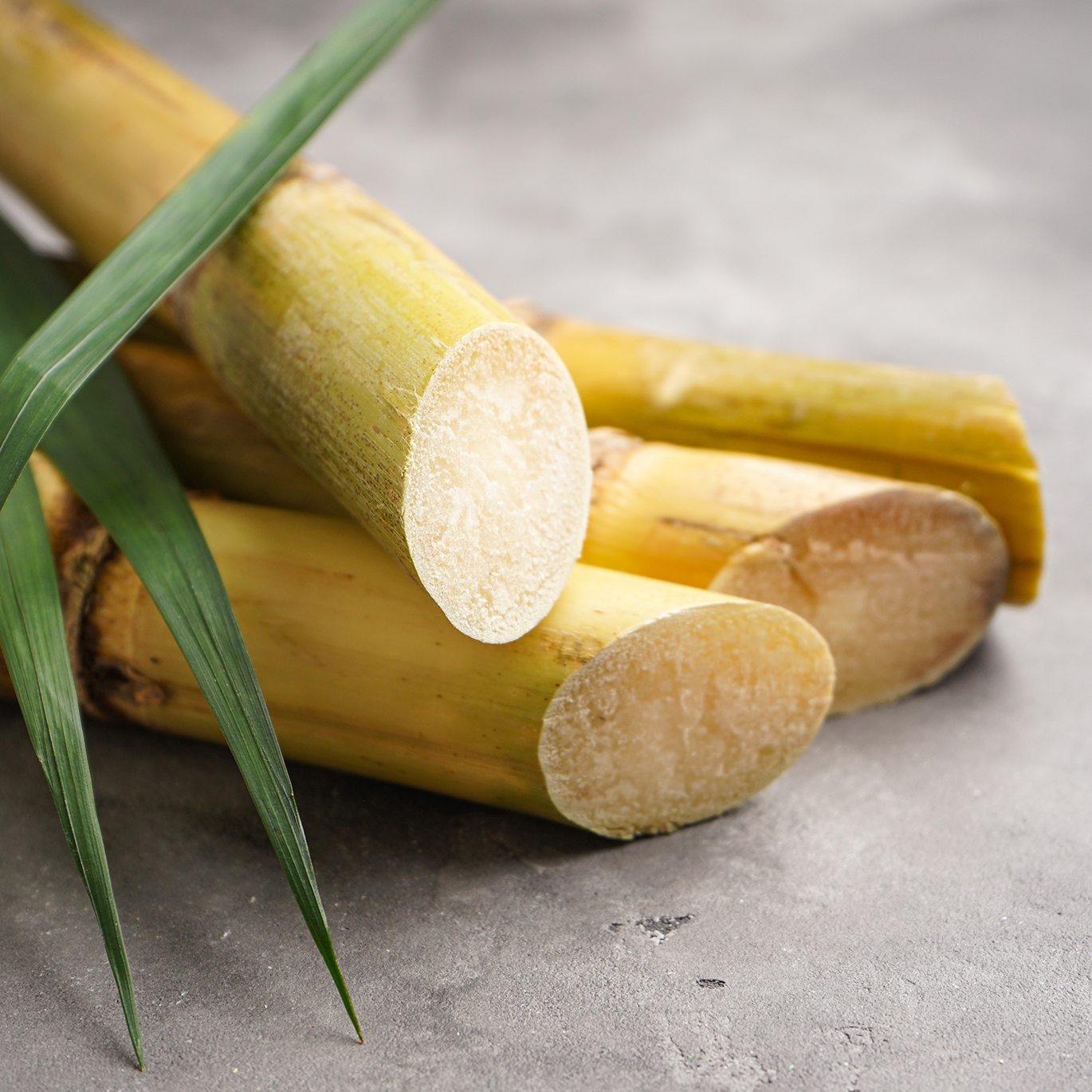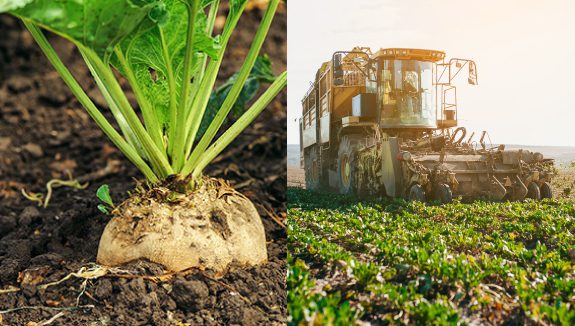Ten major differences in cultivation practices of Sugar beet vs sugar cane
Wiki Article
The Great Argument: Sugar Beet Vs Sugar Cane - Which Is the Superior Option for Sugar?
The discussion over sugar beet versus sugar cane as the favored sweetener entails a number of vital elements. Each offers distinctive benefits and challenges pertaining to manufacturing, flavor, and wellness ramifications. While sugar beet might appeal to those prioritizing sustainability, sugar cane has its very own cultural and cooking importance. As customers become a lot more mindful of their choices, the concern remains: which sugar absolutely sticks out in today's market?The Origins of Sugar Beet and Sugar Cane
Although sugar cane has actually been cultivated for thousands of years, largely in exotic regions, sugar beet became a substantial option in cooler environments throughout the 18th century. Sugar cane, belonging to Southeast Asia, was very first trained around 8000 BCE and spread out around the world with trade and expedition. Its high sucrose material made it a useful plant, causing extensive haciendas in regions like the Caribbean and Brazil.In comparison, sugar beet was very first grown in the Mediterranean around the 18th century, particularly obtaining grip in Europe as a response to sugar cane shortages. The plant prospers in pleasant environments, making it ideal for regions with chillier weather condition. The discovery that sugar can be removed from beet origins reinvented sweetener manufacturing, specifically throughout the Napoleonic Battles when trade limitations restricted cane sugar accessibility. The increase of sugar beet farming marked a zero hour in the history of sweeteners, offering a neighborhood source for lots of countries.
Manufacturing Processes: From Area to Sweetener
The production procedures of sugar beet and sugar cane expose substantial differences in farming methods, gathering methods, and refinement stages. Comprehending these nuances is important for appreciating how each plant contributes to the overall sugar market. This contrast highlights the distinct characteristics and obstacles related to both resources of sweet taste.
Farming Methods Contrast
Cultivation techniques for sugar beet and sugar cane reveal distinct methods that influence their manufacturing procedures, from area prep work to final sweetener removal. Sugar beet cultivation generally includes raking and harrowing to develop a fine seedbed, adhered to by seeding in rows to assist in development. This plant gain from cooler environments and is usually grown in springtime. In comparison, sugar cane is generally grown in furrows with pre-sprouted cane items, needing a cozy, exotic environment for optimal growth. Cane areas are typically set out to manage water efficiently, provided its demand for considerable irrigation. Both crops are managed with specific fertilization and insect control practices customized to their development environments, impacting return high quality and performance in sugar extraction.
Gathering Methods Clarified
Effective harvesting approaches for sugar beet and sugar cane play a vital duty in guaranteeing maximum return and quality of the final item. Sugar beet gathering generally utilizes mechanical origin farmers, which successfully uproot the beets from the soil and separate them from the vegetation. This approach decreases damages to the beetroots and reduces labor costs. On the other hand, sugar cane harvesting may use either manual work or machinery, relying on the region and scale of production. Mechanical harvesters reduced the cane at the base and often remove the fallen leaves, maximizing the procedure for bigger areas. Both techniques require careful timing to guarantee the plants are collected at peak sweetness, influencing the high quality of the final sugar product.Improvement Process Distinctions
While both sugar beet and sugar cane go through extensive refinement processes to change their raw types right into functional sweeteners, the methods employed vary considerably. Sugar beet improvement begins with cleaning and cutting the beets right into slim cossettes, adhered to by diffusion, where hot water essences sucrose. The resulting juice is then purified, focused, and taken shape. In contrast, sugar cane processing includes crushing the stalks to extract juice, which is then cleared up using lime and warm to eliminate impurities. The cane juice is vaporized to develop syrup before crystallization. Inevitably, while both procedures intend to produce white sugar, the distinct techniques highlight the unique attributes of each resource and their implications for flavor and purity in the final item.Nutritional Profiles: What remains in Your Sweetener?
The nutritional accounts of sugar beet and sugar cane present distinctive differences worth examining. This comparison includes facets such as caloric content, mineral and vitamin visibility, and variations in glycemic index. Comprehending these factors can give insights right into exactly how each sugar might influence overall wellness.Calorie Content Comparison
Understanding the caloric material of sugar beet and sugar cane is essential for those conscious of their dietary options. Both sugar mostly include sucrose, contributing a similar calorie worth. Typically, sugar beet consists of about 387 calories per 100 grams, while sugar cane has regarding 390 calories per the same amount. The slight difference in calorie content may not considerably influence most diets; nonetheless, it is exceptional for those very closely monitoring their caloric consumption. In addition, both sugar sources give energy yet do not have vital nutrients, making them largely resources of vacant calories. People seeking much healthier choices may desire to take right into account these aspects when selecting in between sugar beet and sugar cane as their chosen sugar.Mineral and Vitamin Content
Calorie web content gives only a part of the picture when reviewing sugar beet and sugar cane. Both resources of sugar vary noticeably in their mineral and vitamin accounts. Sugar beets are incredibly abundant in essential nutrients, including potassium, magnesium, and iron. They likewise include percentages of vitamins such as B6 and folate, contributing to their dietary value. In contrast, sugar cane uses a various collection of advantages, consisting of calcium, phosphorus, and traces of B vitamins. While neither alternative is a considerable source of minerals and vitamins compared to entire foods, sugar beets might have a slight side because of their higher mineral material. Eventually, consumers seeking nutritional take advantage of sugar ought to consider these distinctions in accounts.Glycemic Index Differences
Glycemic index plays a vital duty in examining how different sugar influence blood glucose levels. Sugar beet and sugar cane display notable distinctions in their glycemic feedbacks. Usually, sugar beet has a lower glycemic index contrasted to sugar cane, resulting in a slower and steadier rise in blood sugar levels after usage. This quality may make sugar beet a preferable choice for people handling diabetes or those seeking to keep stable energy degrees. In comparison, sugar cane has a tendency to blog here cause a more rapid spike in blood glucose, which could result in quicker power crashes. Understanding these differences is considerable for consumers intending to make informed nutritional selections pertaining to sugar and their effect on total great site health and wellness.Environmental Impact: Sustainability Considerations
While both sugar beet and sugar cane are necessary sources of sugar, their ecological effects and sustainability factors to consider vary significantly. Sugar beetroots, largely grown in pleasant areas, usually need much less water and can be cultivated in varied environments. They likewise gain from plant turning techniques, which enhance soil health and wellness and minimize the requirement for artificial plant foods. Extensive farming of sugar beets can lead to soil depletion and pesticide usage.In contrast, sugar cane flourishes in exotic climates and frequently necessitates considerable water sources for irrigation (Sugar beet vs sugar cane). The monoculture nature of sugar cane farming can aggravate dirt disintegration and biodiversity loss. Additionally, the burning of cane fields before harvest launches carbon discharges and adds to air contamination. Both plants encounter challenges pertaining to climate change, yet their varying cultivation practices profoundly affect their overall sustainability profiles. The option between sugar beet and sugar cane includes evaluating these ecological influences very carefully.
Preference and Culinary Utilizes: Which Sugar Reigns Supreme?
The selection between sugar beet and sugar cane expands past environmental considerations to encompass taste and cooking applications. Sugar beet, frequently viewed as having a slightly different taste account, often tends to be much less sweet than sugar cane. This refined distinction can influence its usage in recipes, specifically in baked items where a neutral sweetness is preferred.On the other hand, sugar cane is celebrated for its unique, abundant, and a lot more complicated flavor, making it a recommended choice for drinks and desserts - Sugar beet vs sugar cane. Its natural molasses web content can enhance the depth of flavors in different recipes
In cooking, sugar cane's flexibility shines through in marinates, glazes, and confections, while sugar beet is typically located in refined foods and sweeteners like granulated sugar. Eventually, the decision between both sweeteners commonly pivots on individual preference preferences and certain cooking applications, with each offering special benefits in the kitchen area.
Wellness Ramifications: Sugar Beet Vs Sugar Cane
Both sugar beet and sugar cane have distinctive health and wellness ramifications that can influence consumer selections. Sugar beet vs sugar cane. Sugar beet is usually pertained to for its higher fiber content, which can assist gastrointestinal health and wellness. In addition, it has particular anti-oxidants that might add to total health. On the other hand, sugar cane is rich in nutrients such as calcium, potassium, and magnesium, offering some mineral advantagesNonetheless, both resources largely include sucrose, which can result in comparable wellness worries when eaten exceedingly, such as excessive weight, diabetes, and heart problem. The handling techniques likewise vary; sugar beet is generally improved a lot more intensively, potentially resulting in a loss of certain nutrients. Consumers worried about ingredients might choose sugar cane, as it commonly undergoes much less handling. Ultimately, comprehending these health implications can lead individuals towards making informed decisions regarding their sugar selections.
Customer Preferences: Patterns and Insights
Customer preferences for sweeteners have evolved substantially in recent times, affected by health and wellness fads, ecological concerns, and nutritional options. Boosted recognition of the adverse health and wellness results connected with extreme sugar usage has actually led several consumers to seek options. This change has actually motivated a growing passion in natural sugar, with sugar beet and sugar cane going to the leading edge of conversations.Research indicates that consumers are progressively favoring sugar beet as a result of its perceived ecological advantages, as it is commonly grown closer to refining plants, minimizing transport discharges. Alternatively, sugar cane is commonly related to exotic areas and may carry understandings of sustainability obstacles.

Frequently Asked Inquiries
Just How Do Sugar Beet and Sugar Cane Affect Blood Glucose Degrees?
Sugar beet and sugar cane both include sucrose, which can raise blood glucose levels. The influence mostly depends upon specific metabolism and intake quantities, but both resources contribute likewise to blood sugar actions in most instances.Which Sugar Is Much Better for Baking and Food preparation?
When assessing sugar for cooking and food preparation, one need to take into consideration appearance, flavor, and moisture retention. Sugar beet and sugar cane both offer unique top qualities, with sugar cane usually chosen for its richer flavor account in cooking applications.Can Sugar Beet or Cane Be Made Use Of in Vegan Diets?
Both sugar beet and sugar cane can be utilized in vegan diet plans. They are plant-derived sweeteners, making them suitable for people looking for vegan-friendly alternatives without animal items, making certain moral options in their culinary practices.What Are the Historic Uses Sugar Beet and Cane?
Historically, sugar beet and cane worked as crucial resources of sweetness, with cane grown in tropical regions and beet in pleasant areas. Both have actually been important to different societies, economic situations, and cooking traditions throughout background.Are There Any Kind Of Alternatives to Sugar Beet and Cane?
Alternatives to sugar beet and cane include agave nectar, honey, syrup, and fabricated sugar like aspartame and sucralose. These replacements use varying tastes and health advantages, attracting diverse nutritional preferences and constraints.Report this wiki page